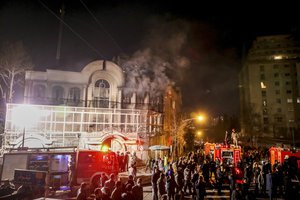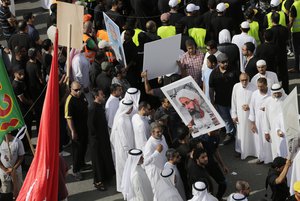- published: 22 Apr 2015
- views: 13
-
remove the playlistEthnonym
- remove the playlistEthnonym
- published: 14 Jul 2015
- views: 0
- published: 10 Aug 2015
- views: 3
- published: 10 Aug 2015
- views: 7
- published: 17 Sep 2009
- views: 31373
- author: ComandanteCrus
- published: 18 Mar 2015
- views: 6
- published: 27 Aug 2012
- views: 357
- published: 21 Nov 2013
- views: 1428
- author: Jewish Learning
- published: 11 Aug 2015
- views: 2
- published: 11 Aug 2015
- views: 0
- published: 11 Aug 2015
- views: 9
An ethnonym (from the Greek: ἔθνος, éthnos, "nation" and ὄνομα, ónoma, "name") is the name applied to a given ethnic group. Ethnonyms can be divided into two categories: exonyms (where the name of the ethnic group has been created by another group of people) and autonyms or endonyms (self-designation; where the name is created and used by the ethnic group itself).
As an example, the ethnonym for the ethnically dominant group in Germany is the Germans. This ethnonym is an exonym used by the English-speaking world, although the term itself is derived from Latin. Conversely, Germans themselves use the autonym of die Deutschen. Germans are indicated by exonyms in many European languages, such as Italian (tedeschi), French (Allemands), Spanish (Alemanes) and Polish (Niemcy).
Numerous ethnonyms can apply to the same ethnic or racial group, with various levels of recognition, acceptance and use. The State Library of South Australia contemplated this issue when considering Library of Congress Headings for literature pertaining to Aboriginal and Torres Strait Islander people. Some 20 different ethnonyms were considered as potential Library of Congress headings, but it was recommended that only a fraction of them be employed for the purposes of cataloguing.
This article is licensed under the Creative Commons Attribution-ShareAlike 3.0 Unported License, which means that you can copy and modify it as long as the entire work (including additions) remains under this license.
- Loading...

-
 0:23
0:23Ethnonym Meaning
Ethnonym MeaningEthnonym Meaning
Video shows what ethnonym means. The name of an ethnic group.. Ethnonym Meaning. How to pronounce, definition audio dictionary. How to say ethnonym. Powered by MaryTTS, Wiktionary -
 0:16
0:16How to Pronounce Ethnonym
How to Pronounce EthnonymHow to Pronounce Ethnonym
This video shows you how to pronounce Ethnonym -
 0:32
0:32What does ethnonym mean?
What does ethnonym mean?What does ethnonym mean?
What does ethnonym mean? A spoken definition of ethnonym. Intro Sound: Typewriter - Tamskp Licensed under CC:BA 3.0 Outro Music: Groove Groove - Kevin MacLeod (incompetech.com) Licensed under CC:BA 3.0 Intro/Outro Photo: The best days are not planned - Marcus Hansson Licensed under CC-BY-2.0 Book Image: Open Book template PSD - DougitDesign Licensed under CC:BA 3.0 Text derived from: http://en.wiktionary.org/wiki/ethnonym Text to Speech powered by TTS-API.COM -
 13:23
13:23Vellezerit Gashi - Kenga e Zagrebit
Vellezerit Gashi - Kenga e ZagrebitVellezerit Gashi - Kenga e Zagrebit
Shqip(ë)tar (plural: Shqip(ë)tarët, feminine: Shqip(ë)tare), Gheg Albanian: Shqyptar[1], is an Albanian language ethnonym (autonym), by which Albanians call themselves.[2] They call their country Shqipëria. During the Middle Ages, the Albanians called their country Arbëri or Arbëni and referred to themselves as Arbëresh or Arbënesh[3][4] and Αρβανίτες (Arvanites) in Greece. As early as the 17th century the placename Shqipëria and the ethnic demonym Shqiptarë gradually replaced Arbëria and Arbëresh.[5] Faqja në FACEBOOK | Publishing : Produksioni Kola All Rights Reserved (P) & (C) Kola Commerce -
 10:25
10:25Vellezerit Gashi - Kush e hoqi gurin
Vellezerit Gashi - Kush e hoqi gurinVellezerit Gashi - Kush e hoqi gurin
Shqip(ë)tar (plural: Shqip(ë)tarët, feminine: Shqip(ë)tare), Gheg Albanian: Shqyptar[1], is an Albanian language ethnonym (autonym), by which Albanians call themselves.[2] They call their country Shqipëria. During the Middle Ages, the Albanians called their country Arbëri or Arbëni and referred to themselves as Arbëresh or Arbënesh[3][4] and Αρβανίτες (Arvanites) in Greece. As early as the 17th century the placename Shqipëria and the ethnic demonym Shqiptarë gradually replaced Arbëria and Arbëresh.[5] Faqja në FACEBOOK | Publishing : Produksioni Kola All Rights Reserved (P) & (C) Kola Commerce -
 2:59
2:59ARBERESHET - An answer to some people who sold their blood
ARBERESHET - An answer to some people who sold their bloodARBERESHET - An answer to some people who sold their blood
The name Arbërishte is derived from the ethnonym "Albanoi", which in turn comes from the toponym "Arbëria" (Άρβανα), which in the Middle Ages referred to a r... -
 10:11
10:11Fraternity and Sorority Members are NOT Greeks
Fraternity and Sorority Members are NOT GreeksFraternity and Sorority Members are NOT Greeks
(my English-language comments begin at the 2-minute mark) Sure, maybe they're not going to stop calling themselves "Greeks", but the rest of us can stop. Please consider this the next time you discuss them -- you don't have to co-opt the Greek ethnonym as they do, and annoyingly so. Call them what they really are... (i.e. anything BUT Greek). P.S. case in point, I'm sure they have no idea what I actually said in the first 2 minutes of this video. -
 8:27
8:27Pagania and Narentians.wmv
Pagania and Narentians.wmvPagania and Narentians.wmv
The Narentines (Greek: (Ν)αρεντάνοι - (N)arentanoi, Croatian: Neretljani, Italian: Narentani, Narentini) was an ethnonym of a South Slavic tribe that occupied an area of southern Dalmatia west of the river Neretva or "Narenta". They were known for their piracy, so they are today known as the Neretva pirates -
 2:20
2:20Hebrews? Israelites? Jews? What are we? Where did these names come from? Jewu
Hebrews? Israelites? Jews? What are we? Where did these names come from? JewuHebrews? Israelites? Jews? What are we? Where did these names come from? Jewu
Hebrews (Hebrew: עברים or עבריים, Tiberian ʿIḇrîm, ʿIḇriyyîm; Modern Hebrew ʿIvrim, ʿIvriyyim; ISO 259-3 ʕibrim, ʕibriyim) is an ethnonym used in the Tanakh ... -
 4:16
4:16Moli Jeti dy dele treqind pare
Moli Jeti dy dele treqind pareMoli Jeti dy dele treqind pare
Shqip(ë)tar (plural: Shqip(ë)tarët, feminine: Shqip(ë)tare), Gheg Albanian: Shqyptar[1], is an Albanian language ethnonym (autonym), by which Albanians call themselves.[2] They call their country Shqipëria. During the Middle Ages, the Albanians called their country Arbëri or Arbëni and referred to themselves as Arbëresh or Arbënesh[3][4] and Αρβανίτες (Arvanites) in Greece. As early as the 17th century the placename Shqipëria and the ethnic demonym Shqiptarë gradually replaced Arbëria and Arbëresh.[5] Shqipja Master -
 13:09
13:09Sofra e Bilbilave - dora jote , more kendo bylby , ma mir ne pyll - Potpuri 2
Sofra e Bilbilave - dora jote , more kendo bylby , ma mir ne pyll - Potpuri 2Sofra e Bilbilave - dora jote , more kendo bylby , ma mir ne pyll - Potpuri 2
Shqip(ë)tar (plural: Shqip(ë)tarët, feminine: Shqip(ë)tare), Gheg Albanian: Shqyptar[1], is an Albanian language ethnonym (autonym), by which Albanians call themselves.[2] They call their country Shqipëria. During the Middle Ages, the Albanians called their country Arbëri or Arbëni and referred to themselves as Arbëresh or Arbënesh[3][4] and Αρβανίτες (Arvanites) in Greece. As early as the 17th century the placename Shqipëria and the ethnic demonym Shqiptarë gradually replaced Arbëria and Arbëresh.[5] Sofra e Bilbilave - dora jote , more kendo bylby , ma mir ne pyll - Potpuri 2 -
 9:10
9:10SHKELZEN JETISHI & ZENEL DOLI (sofra)
SHKELZEN JETISHI & ZENEL DOLI (sofra)SHKELZEN JETISHI & ZENEL DOLI (sofra)
Shqip(ë)tar (plural: Shqip(ë)tarët, feminine: Shqip(ë)tare), Gheg Albanian: Shqyptar[1], is an Albanian language ethnonym (autonym), by which Albanians call themselves.[2] They call their country Shqipëria. During the Middle Ages, the Albanians called their country Arbëri or Arbëni and referred to themselves as Arbëresh or Arbënesh[3][4] and Αρβανίτες (Arvanites) in Greece. As early as the 17th century the placename Shqipëria and the ethnic demonym Shqiptarë gradually replaced Arbëria and Arbëresh.[5] -
 14:46
14:46Grupi Folklorik KUMANOVE
Grupi Folklorik KUMANOVEGrupi Folklorik KUMANOVE
Shqip(ë)tar (plural: Shqip(ë)tarët, feminine: Shqip(ë)tare), Gheg Albanian: Shqyptar[1], is an Albanian language ethnonym (autonym), by which Albanians call themselves.[2] They call their country Shqipëria. During the Middle Ages, the Albanians called their country Arbëri or Arbëni and referred to themselves as Arbëresh or Arbënesh[3][4] and Αρβανίτες (Arvanites) in Greece. As early as the 17th century the placename Shqipëria and the ethnic demonym Shqiptarë gradually replaced Arbëria and Arbëresh.[5] Produksioni KuMaNoVa -
 8:30
8:30Vellezerit Gashi - Komandanti legjendar Adem Jashari
Vellezerit Gashi - Komandanti legjendar Adem JashariVellezerit Gashi - Komandanti legjendar Adem Jashari
Shqip(ë)tar (plural: Shqip(ë)tarët, feminine: Shqip(ë)tare), Gheg Albanian: Shqyptar[1], is an Albanian language ethnonym (autonym), by which Albanians call themselves.[2] They call their country Shqipëria. During the Middle Ages, the Albanians called their country Arbëri or Arbëni and referred to themselves as Arbëresh or Arbënesh[3][4] and Αρβανίτες (Arvanites) in Greece. As early as the 17th century the placename Shqipëria and the ethnic demonym Shqiptarë gradually replaced Arbëria and Arbëresh.[5] Faqja në FACEBOOK | Publishing : Produksioni Kola All Rights Reserved (P) & (C) Kola Commerce
- African Americans
- Barbarian
- Belgian
- Bushmen
- Demonym
- Diaspora studies
- Elijah Muhammad
- Endonym
- Ethnic group
- Ethnonym
- Euphemism treadmill
- Exonym
- Exonym and endonym
- Germany
- Greek language
- Hyphenated American
- India
- Latin
- Library of Congress
- Martin Luther King
- NAACP
- Name
- Natural language
- Negro
- Philistine
- Statistext
- Vandals
-

Ethnonym Meaning
Video shows what ethnonym means. The name of an ethnic group.. Ethnonym Meaning. How to pronounce, definition audio dictionary. How to say ethnonym. Powered by MaryTTS, Wiktionary -

How to Pronounce Ethnonym
This video shows you how to pronounce Ethnonym -

What does ethnonym mean?
What does ethnonym mean? A spoken definition of ethnonym. Intro Sound: Typewriter - Tamskp Licensed under CC:BA 3.0 Outro Music: Groove Groove - Kevin MacLeod (incompetech.com) Licensed under CC:BA 3.0 Intro/Outro Photo: The best days are not planned - Marcus Hansson Licensed under CC-BY-2.0 Book Image: Open Book template PSD - DougitDesign Licensed under CC:BA 3.0 Text der -

Vellezerit Gashi - Kenga e Zagrebit
Shqip(ë)tar (plural: Shqip(ë)tarët, feminine: Shqip(ë)tare), Gheg Albanian: Shqyptar[1], is an Albanian language ethnonym (autonym), by which Albanians call themselves.[2] They call their country Shqipëria. During the Middle Ages, the Albanians called their country Arbëri or Arbëni and referred to themselves as Arbëresh or Arbënesh[3][4] and Αρβανίτες (Arvanites) in Greece. As early as the 17th ce -

Vellezerit Gashi - Kush e hoqi gurin
Shqip(ë)tar (plural: Shqip(ë)tarët, feminine: Shqip(ë)tare), Gheg Albanian: Shqyptar[1], is an Albanian language ethnonym (autonym), by which Albanians call themselves.[2] They call their country Shqipëria. During the Middle Ages, the Albanians called their country Arbëri or Arbëni and referred to themselves as Arbëresh or Arbënesh[3][4] and Αρβανίτες (Arvanites) in Greece. As early as the 17th ce -

ARBERESHET - An answer to some people who sold their blood
The name Arbërishte is derived from the ethnonym "Albanoi", which in turn comes from the toponym "Arbëria" (Άρβανα), which in the Middle Ages referred to a r... -

Fraternity and Sorority Members are NOT Greeks
(my English-language comments begin at the 2-minute mark) Sure, maybe they're not going to stop calling themselves "Greeks", but the rest of us can stop. Please consider this the next time you discuss them -- you don't have to co-opt the Greek ethnonym as they do, and annoyingly so. Call them what they really are... (i.e. anything BUT Greek). P.S. case in point, I'm sure they have no idea what I -

Pagania and Narentians.wmv
The Narentines (Greek: (Ν)αρεντάνοι - (N)arentanoi, Croatian: Neretljani, Italian: Narentani, Narentini) was an ethnonym of a South Slavic tribe that occupied an area of southern Dalmatia west of the river Neretva or "Narenta". They were known for their piracy, so they are today known as the Neretva pirates -

Hebrews? Israelites? Jews? What are we? Where did these names come from? Jewu
Hebrews (Hebrew: עברים or עבריים, Tiberian ʿIḇrîm, ʿIḇriyyîm; Modern Hebrew ʿIvrim, ʿIvriyyim; ISO 259-3 ʕibrim, ʕibriyim) is an ethnonym used in the Tanakh ... -

Moli Jeti dy dele treqind pare
Shqip(ë)tar (plural: Shqip(ë)tarët, feminine: Shqip(ë)tare), Gheg Albanian: Shqyptar[1], is an Albanian language ethnonym (autonym), by which Albanians call themselves.[2] They call their country Shqipëria. During the Middle Ages, the Albanians called their country Arbëri or Arbëni and referred to themselves as Arbëresh or Arbënesh[3][4] and Αρβανίτες (Arvanites) in Greece. As early as the 17th ce -

Sofra e Bilbilave - dora jote , more kendo bylby , ma mir ne pyll - Potpuri 2
Shqip(ë)tar (plural: Shqip(ë)tarët, feminine: Shqip(ë)tare), Gheg Albanian: Shqyptar[1], is an Albanian language ethnonym (autonym), by which Albanians call themselves.[2] They call their country Shqipëria. During the Middle Ages, the Albanians called their country Arbëri or Arbëni and referred to themselves as Arbëresh or Arbënesh[3][4] and Αρβανίτες (Arvanites) in Greece. As early as the 17th ce -

SHKELZEN JETISHI & ZENEL DOLI (sofra)
Shqip(ë)tar (plural: Shqip(ë)tarët, feminine: Shqip(ë)tare), Gheg Albanian: Shqyptar[1], is an Albanian language ethnonym (autonym), by which Albanians call themselves.[2] They call their country Shqipëria. During the Middle Ages, the Albanians called their country Arbëri or Arbëni and referred to themselves as Arbëresh or Arbënesh[3][4] and Αρβανίτες (Arvanites) in Greece. As early as the 17th ce -

Grupi Folklorik KUMANOVE
Shqip(ë)tar (plural: Shqip(ë)tarët, feminine: Shqip(ë)tare), Gheg Albanian: Shqyptar[1], is an Albanian language ethnonym (autonym), by which Albanians call themselves.[2] They call their country Shqipëria. During the Middle Ages, the Albanians called their country Arbëri or Arbëni and referred to themselves as Arbëresh or Arbënesh[3][4] and Αρβανίτες (Arvanites) in Greece. As early as the 17th ce -

Vellezerit Gashi - Komandanti legjendar Adem Jashari
Shqip(ë)tar (plural: Shqip(ë)tarët, feminine: Shqip(ë)tare), Gheg Albanian: Shqyptar[1], is an Albanian language ethnonym (autonym), by which Albanians call themselves.[2] They call their country Shqipëria. During the Middle Ages, the Albanians called their country Arbëri or Arbëni and referred to themselves as Arbëresh or Arbënesh[3][4] and Αρβανίτες (Arvanites) in Greece. As early as the 17th ce -

Naser Latifi & Muharrem Duraku
Shqip(ë)tar (plural: Shqip(ë)tarët, feminine: Shqip(ë)tare), Gheg Albanian: Shqyptar[1], is an Albanian language ethnonym (autonym), by which Albanians call themselves.[2] They call their country Shqipëria. During the Middle Ages, the Albanians called their country Arbëri or Arbëni and referred to themselves as Arbëresh or Arbënesh[3][4] and Αρβανίτες (Arvanites) in Greece. As early as the 17th ce -

VELLEZERIT GASHI - HAJREDIN PASHA
Shqip(ë)tar (plural: Shqip(ë)tarët, feminine: Shqip(ë)tare), Gheg Albanian: Shqyptar[1], is an Albanian language ethnonym (autonym), by which Albanians call themselves.[2] They call their country Shqipëria. During the Middle Ages, the Albanians called their country Arbëri or Arbëni and referred to themselves as Arbëresh or Arbënesh[3][4] and Αρβανίτες (Arvanites) in Greece. As early as the 17th ce -

Gëzuar 2013 me SOFRA FESTIVE muzike live DANI dhe EDI FURRA - Komplet Emisioni
Shqip(ë)tar (plural: Shqip(ë)tarët, feminine: Shqip(ë)tare), Gheg Albanian: Shqyptar[1], is an Albanian language ethnonym (autonym), by which Albanians call themselves.[2] They call their country Shqipëria. During the Middle Ages, the Albanians called their country Arbëri or Arbëni and referred to themselves as Arbëresh or Arbënesh[3][4] and Αρβανίτες (Arvanites) in Greece. As early as the 17th ce -

The History Of The Bulgars
The Bulgars (also Bulghars, Bulgari, Bolgars, Bolghars, Bolgari; Proto-Bulgarians) were semi-nomadic warrior tribes of Turkic extraction who flourished in the Pontic-Caspian steppe and the Volga region during the 7th century. Emerging as nomadic equestrians in the Volga-Ural region, according to some researchers their roots can be traced to Central Asia. During their westward migration across the -

Kırımçak Kızı Anara - Ey Güzel Kirim
Ey Güzel Kirim - Krimcak Kizi Anara KRYMCHAKS Krymchaks (The Krymchak people) are a small community within the Crimean population that developed on ethnic-re... -

Shahirat Tetovar pjesa 1
Shqip(ë)tar (plural: Shqip(ë)tarët, feminine: Shqip(ë)tare), Gheg Albanian: Shqyptar[1], is an Albanian language ethnonym (autonym), by which Albanians call themselves.[2] They call their country Shqipëria. During the Middle Ages, the Albanians called their country Arbëri or Arbëni and referred to themselves as Arbëresh or Arbënesh[3][4] and Αρβανίτες (Arvanites) in Greece. As early as the 17th ce -

Hebrews
Hebrews (Hebrew: עברים or עבריים, Tiberian ʿIḇrîm, ʿIḇriyyîm; Modern Hebrew ʿIvrim, ʿIvriyyim; ISO 259-3 ʕibrim, ʕibriyim) is an ethnonym, appearing 34 times within 32 verses of the Tanakh (Hebrew Bible). It is mostly taken as synonymous with the Semitic Israelites, especially in the pre-monarchic period when they were still nomadic, but in some instances it may also be used in a wider sense, ref -

Vellezerit Gashi - Kenge kurbeti
Shqip(ë)tar (plural: Shqip(ë)tarët, feminine: Shqip(ë)tare), Gheg Albanian: Shqyptar[1], is an Albanian language ethnonym (autonym), by which Albanians call themselves.[2] They call their country Shqipëria. During the Middle Ages, the Albanians called their country Arbëri or Arbëni and referred to themselves as Arbëresh or Arbënesh[3][4] and Αρβανίτες (Arvanites) in Greece. As early as the 17th ce -

Why Do Armenians Call Their Country "Hayastan"?
There was a Bronze Age tribe of the Armens (Armans, Armani; Armenian: Արմեններ Armenner, Առամեններ Aṙamenner), either identical to or forming a subset of the...
Ethnonym Meaning
- Order: Reorder
- Duration: 0:23
- Updated: 22 Apr 2015
- views: 13
- published: 22 Apr 2015
- views: 13
How to Pronounce Ethnonym
- Order: Reorder
- Duration: 0:16
- Updated: 06 Mar 2015
- views: 0
- published: 06 Mar 2015
- views: 0
What does ethnonym mean?
- Order: Reorder
- Duration: 0:32
- Updated: 14 Jul 2015
- views: 0
- published: 14 Jul 2015
- views: 0
Vellezerit Gashi - Kenga e Zagrebit
- Order: Reorder
- Duration: 13:23
- Updated: 10 Aug 2015
- views: 3
- published: 10 Aug 2015
- views: 3
Vellezerit Gashi - Kush e hoqi gurin
- Order: Reorder
- Duration: 10:25
- Updated: 10 Aug 2015
- views: 7
- published: 10 Aug 2015
- views: 7
ARBERESHET - An answer to some people who sold their blood
- Order: Reorder
- Duration: 2:59
- Updated: 17 Aug 2013
- views: 31373
- author: ComandanteCrus
- published: 17 Sep 2009
- views: 31373
- author: ComandanteCrus
Fraternity and Sorority Members are NOT Greeks
- Order: Reorder
- Duration: 10:11
- Updated: 18 Mar 2015
- views: 6
- published: 18 Mar 2015
- views: 6
Pagania and Narentians.wmv
- Order: Reorder
- Duration: 8:27
- Updated: 27 Aug 2012
- views: 357
- published: 27 Aug 2012
- views: 357
Hebrews? Israelites? Jews? What are we? Where did these names come from? Jewu
- Order: Reorder
- Duration: 2:20
- Updated: 01 Sep 2014
- views: 1428
- author: Jewish Learning
- published: 21 Nov 2013
- views: 1428
- author: Jewish Learning
Moli Jeti dy dele treqind pare
- Order: Reorder
- Duration: 4:16
- Updated: 11 Aug 2015
- views: 2
- published: 11 Aug 2015
- views: 2
Sofra e Bilbilave - dora jote , more kendo bylby , ma mir ne pyll - Potpuri 2
- Order: Reorder
- Duration: 13:09
- Updated: 11 Aug 2015
- views: 0
- published: 11 Aug 2015
- views: 0
SHKELZEN JETISHI & ZENEL DOLI (sofra)
- Order: Reorder
- Duration: 9:10
- Updated: 11 Aug 2015
- views: 9
- published: 11 Aug 2015
- views: 9
Grupi Folklorik KUMANOVE
- Order: Reorder
- Duration: 14:46
- Updated: 11 Aug 2015
- views: 0
- published: 11 Aug 2015
- views: 0
Vellezerit Gashi - Komandanti legjendar Adem Jashari
- Order: Reorder
- Duration: 8:30
- Updated: 10 Aug 2015
- views: 0
- published: 10 Aug 2015
- views: 0
Naser Latifi & Muharrem Duraku
- Order: Reorder
- Duration: 3:39
- Updated: 11 Aug 2015
- views: 0
- published: 11 Aug 2015
- views: 0
VELLEZERIT GASHI - HAJREDIN PASHA
- Order: Reorder
- Duration: 5:10
- Updated: 11 Aug 2015
- views: 1
- published: 11 Aug 2015
- views: 1
Gëzuar 2013 me SOFRA FESTIVE muzike live DANI dhe EDI FURRA - Komplet Emisioni
- Order: Reorder
- Duration: 47:20
- Updated: 10 Aug 2015
- views: 0
- published: 10 Aug 2015
- views: 0
The History Of The Bulgars
- Order: Reorder
- Duration: 52:25
- Updated: 11 Sep 2015
- views: 0
- published: 11 Sep 2015
- views: 0
Kırımçak Kızı Anara - Ey Güzel Kirim
- Order: Reorder
- Duration: 2:45
- Updated: 26 Jul 2013
- views: 136
- author: townundermusic
- published: 26 Jul 2013
- views: 136
- author: townundermusic
Shahirat Tetovar pjesa 1
- Order: Reorder
- Duration: 5:17
- Updated: 10 Aug 2015
- views: 0
- published: 10 Aug 2015
- views: 0
Hebrews
- Order: Reorder
- Duration: 8:11
- Updated: 17 Nov 2014
- views: 4
- published: 17 Nov 2014
- views: 4
Vellezerit Gashi - Kenge kurbeti
- Order: Reorder
- Duration: 4:28
- Updated: 11 Aug 2015
- views: 1
- published: 11 Aug 2015
- views: 1
Why Do Armenians Call Their Country "Hayastan"?
- Order: Reorder
- Duration: 5:59
- Updated: 25 Jul 2014
- views: 11644
- author: BeautySavesWorld
- published: 25 Jun 2011
- views: 11644
- author: BeautySavesWorld
- Playlist
- Chat
- Playlist
- Chat

Ethnonym Meaning
- published: 22 Apr 2015
- views: 13

How to Pronounce Ethnonym
- published: 06 Mar 2015
- views: 0

What does ethnonym mean?
- published: 14 Jul 2015
- views: 0

Vellezerit Gashi - Kenga e Zagrebit
- published: 10 Aug 2015
- views: 3

Vellezerit Gashi - Kush e hoqi gurin
- published: 10 Aug 2015
- views: 7

ARBERESHET - An answer to some people who sold their blood
- published: 17 Sep 2009
- views: 31373
-
author:
ComandanteCrus
Add Playlist for this Author

Fraternity and Sorority Members are NOT Greeks
- published: 18 Mar 2015
- views: 6

Pagania and Narentians.wmv
- published: 27 Aug 2012
- views: 357

Hebrews? Israelites? Jews? What are we? Where did these names come from? Jewu
- published: 21 Nov 2013
- views: 1428
-
author:
Jewish Learning
Add Playlist for this Author

Moli Jeti dy dele treqind pare
- published: 11 Aug 2015
- views: 2

Sofra e Bilbilave - dora jote , more kendo bylby , ma mir ne pyll - Potpuri 2
- published: 11 Aug 2015
- views: 0

SHKELZEN JETISHI & ZENEL DOLI (sofra)
- published: 11 Aug 2015
- views: 9

Grupi Folklorik KUMANOVE
- published: 11 Aug 2015
- views: 0

Vellezerit Gashi - Komandanti legjendar Adem Jashari
- published: 10 Aug 2015
- views: 0
-
Lyrics list:text lyricsplay full screenplay karaoke
'Forbidden' substances on super-Earths may help sustain life
Edit Zeenews 03 Jan 2016Iranians protest Saudi execution of Shia cleric
Edit Press TV 03 Jan 2016Saudi execution of Shia cleric sparks outrage in Middle East
Edit The Guardian 02 Jan 2016Look for oil prices to spike if hostility between Iran and Saudi Arabia gets worse
Edit Quartz 03 Jan 2016What the Terms 'Hispanic' and 'Latino' Mean to Me
Edit Huffington Post 22 Sep 2015'Simpsons' creator Matt Groening sued by nanny for 'discrimination'
Edit Yahoo Daily News 01 Jul 2015- 1
- 2
- 3
- 4
- 5
- Next page »







